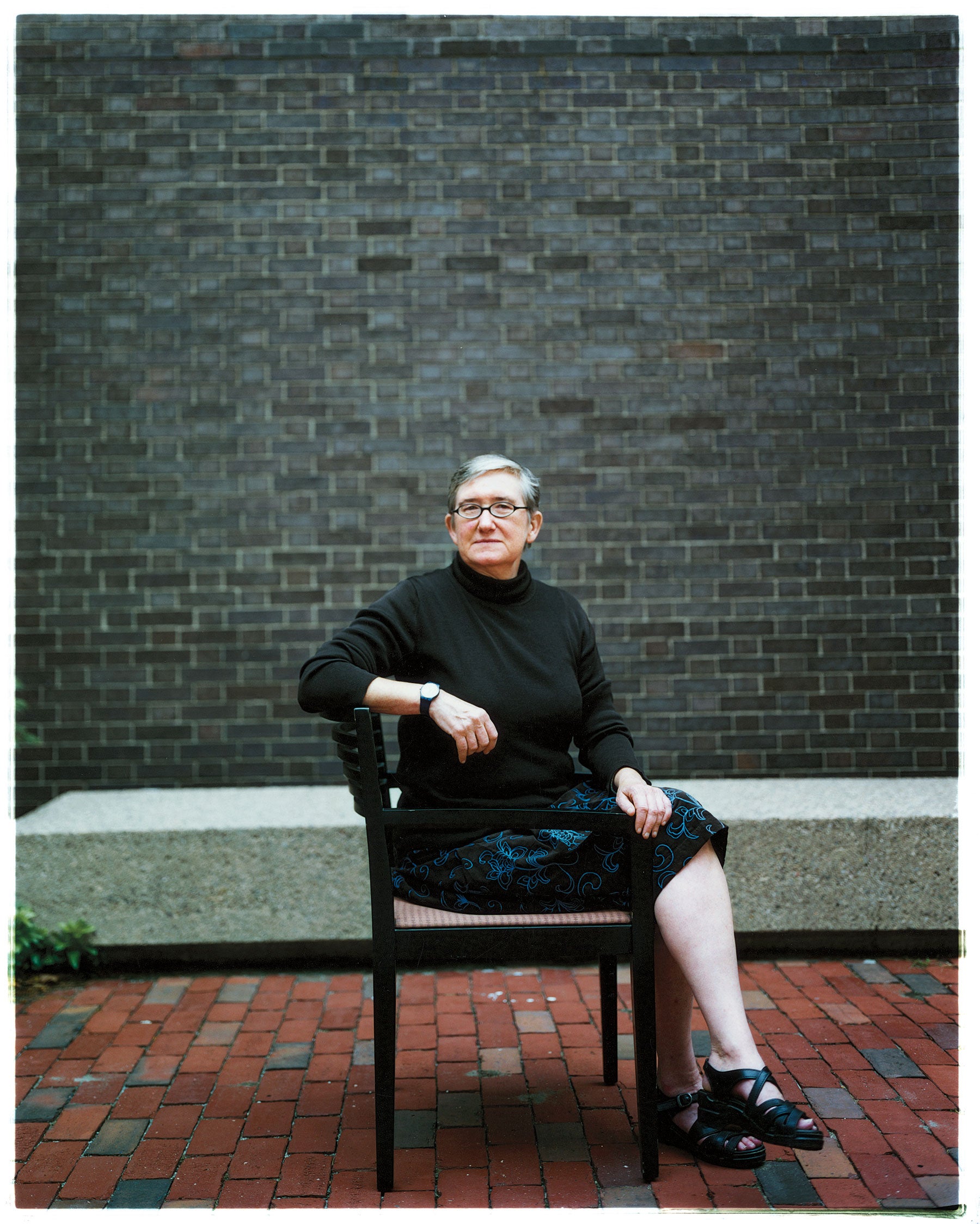Professor Janet Halley formally took the Royall Professorship of Law yesterday in a ceremony in Langdell Library’s Caspersen Room, marking the occasion with a lecture on the legacy of Isaac Royall, Jr. (1719 – 1781), the colonial American slaveholder who played an important role in the creation of Harvard Law School.
Royall, the son of an Antiguan slaveholder who moved his family—and 27 slaves—to Medford, Massachusetts in the early 18th century, took over his father’s estate, “Ten Hills Farm,” which is now the Isaac Royall House, a national historic landmark and museum including the only preserved slave quarters in the northeast United States. In his will, he left land to Harvard to establish its first professorship in law. His heirs sold the Medford estate and used the proceeds to endow Harvard Law School.
Halley joined the faculty as a Professor of Law in 2000. She is an expert on comparative family law, discrimination, law and literary theory, law and social theory, legal theory, and the regulation of sexuality. She is the author of several books and many academic articles, as well as a contributor to various books and anthologies. Her most recent book, “Split Decisions: How and Why To Take a Break From Feminism,” was published by Princeton University Press in 2006.
In her remarks yesterday, Halley explored ideas about how HLS should confront, acknowledge and judge its historic debt to the slaveholder and the inescapable fact that the school was built, in some measure, with money derived from the fruits of slave labor.
“The fact that the funds that established the Royall Chair derived, directly and/or indirectly, from the sale of human beings and the appropriation of their labor—these are facts,” said Halley. “What does one do about them? Thinking in binarized terms of condemnation and redemption just doesn’t seem to capture the complexity of this question.”
Halley began her remarks with a roll call of the names of the distinguished professors who have held the Royall chair before her. She ended her talk—in a coda that left audience members visibly moved—with a contrasting recitation of the recorded names—most of them first names without surnames—of the slaves of the Royall household. “It is a solemn roll call, as intrinsic as the first one I read to our Isaac Royall legacy.”
